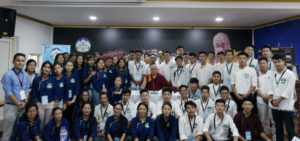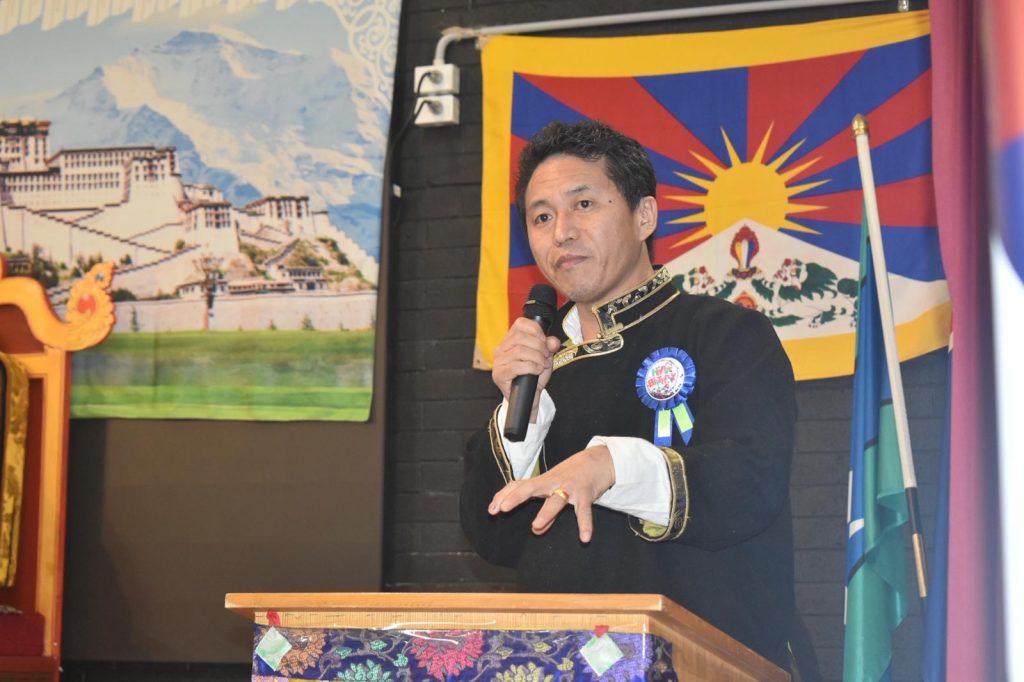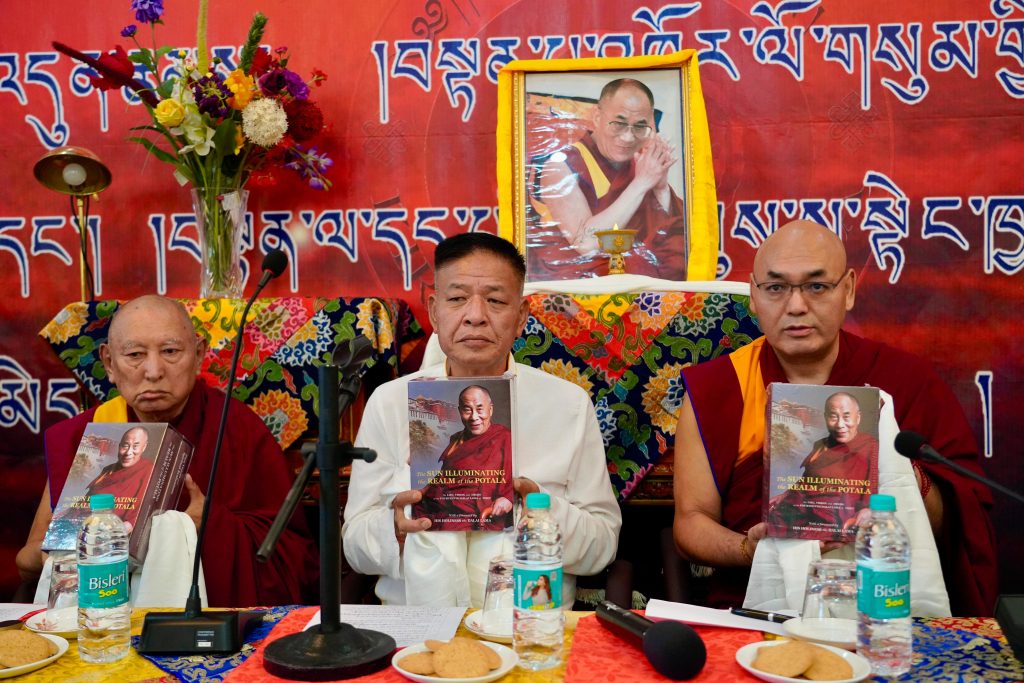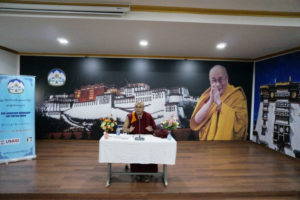
Dharamsala : As per featured in the program of Department of Education’s ‘Third Leadership Workshop for Tibetan Youth’, Speaker of 16th Tibetan Parliament-in-Exile Ven. Khenpo Sonam Tenphel elucidated on the evolution of Tibetan democracy to over 52 Tibetan youths from various colleges at Tibetan Administrative Training Center on June 21, 2018.
‘Democracy is a political system of social governance. Presently, our Tibetan community in exile is governed democratically. However, Tibet, being one country and one race, it is imperative to look back in its history and to investigate and read through the histories of our political administration, for only then, novel ideas and notions can be impressed upon,’ said Speaker Ven. Khenpo Sonam Tenphel.
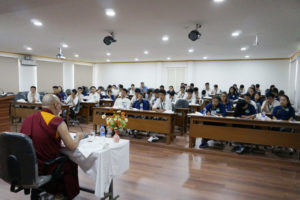
Narrating the political history of Tibet from its first King Nyatri Tsenpo in the 2nd Century AD till the disintegration of its monarchical system of governance in Tibet in 9th Century AD, Speaker delved into its successive evolution from the dominance of Sakya with support of Mongol in 13th Century to the Ganden Phodrang government, established by the 5th Dalai Lama in 1642, who wielded sovereignty over both politic and religious affairs of Tibet till 14th Dalai Lama’s escape to India in 1959 due to Chinese invasion.
Thereafter, he informed the youths on the evolution of democracy in exile by categorizing the years into 4 different periods viz., 1950-1960, 1960-1991, 1991-2001 and 2001-2011, which brought about major changes in the polity of Tibetan democratic administration. Based on those categorized period, he detailed the changes as can be witnessed in the history from His Holiness the Dalai Lama’s aspiration to democratize the Tibetan polity in Tibet itself to formal introduction of democratic polity in Bodh Gaya, India in February 1960 and the reformations brought about within the Tibetan Parliamentary composition, function and the ultimate adoption of Charter of the Tibetans-in-Exile on June 14, 1991. He also briefed them on the subsequent devolution of His Holiness the Dalai Lama’s entire authority, both administrative and political to the elected representatives of Tibetan people in 2011 and the present composition of the Tibetan Parliament-in-Exile.
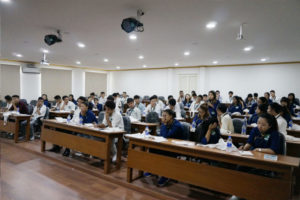
He said, ‘If we look at evolution of democracy in the west, it has come at the price of thousand of lives sacrificed against the doctrine of terror but His Holiness the Dalai Lama presented ‘Democracy’ to his people without even the slightest hint of any struggle for it.’ said the Speaker.
Calling the Tibetan polity of democratic administration as standard with its three pillars and autonomous body, he also spoke on the various functions and roles of the Tibetan Parliament-in-Exile.
Thereafter, he engaged in a Question-Answer with the students.
